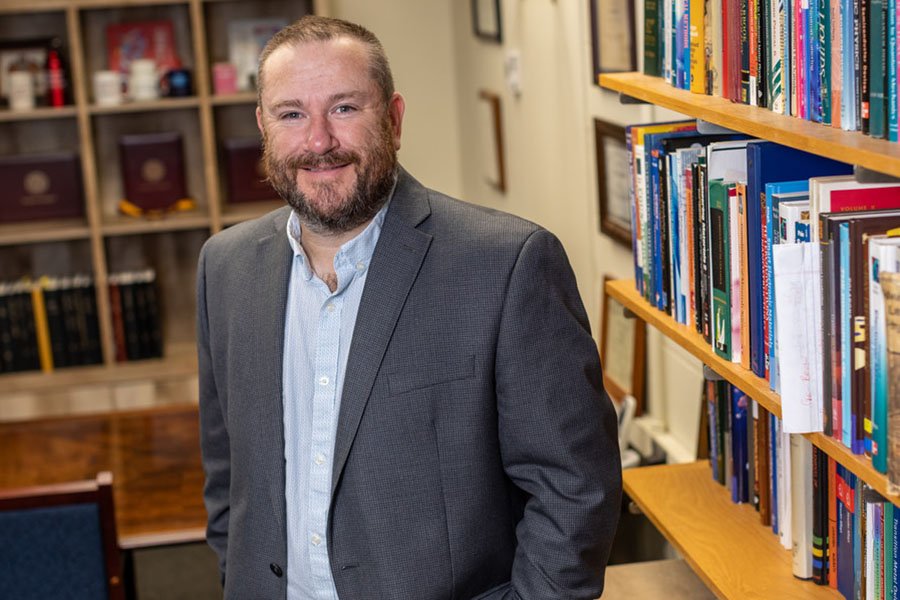Professor Leighton to lead NSF-sponsored Materials Research Science and Engineering Center (MRSEC)

Leighton brings wealth of experience and an international reputation
MINNEAPOLIS / ST. PAUL (10/17/2022)—University of Minnesota Twin Cities Professor Chris Leighton has been appointed by College of Science and Engineering Dean Andrew Alleyne as the new director of the National Science Foundation-sponsored Materials Research Science and Engineering Center (MRSEC). The four-year appointment that runs through September 2026 was approved by the National Science Foundation (NSF).
Leighton, a Distinguished McKnight University Professor and Distinguished University Teaching Professor in the Department of Chemical Engineering and Materials Science, replaces Professor Timothy Lodge who has served as MRSEC director since late 2005.
“Professor Leighton is ideally positioned for the role of MRSEC director,” Lodge said. “He has played a major role in the MRSEC for many years and has led our world-renowned Interdisciplinary Research Group (IRG) on Ionic Control of Materials for almost a decade. He brings a wealth of experience in the field and has a well-deserved international reputation for the creativity and vision of his research program.”
Leighton’s research focuses on a wide variety of materials, such as nanostructures, thin films, heterostructures, and single crystals. The MRSEC research group previously led by Leighton aims to access novel electronic and magnetic properties by direct application of strong local electric fields to promising new materials. This Quantum Leap-aligned research realizes extraordinary materials control, thereby enabling new approaches to low-power magnetic data storage and processing, neuro-inspired computation, and nanophotonic devices.
Leighton has received numerous research and teaching awards and has published almost 250 research papers. He has previously held the Amundson Chair and Shell Chair in the Department of Chemical Engineering and Materials Science. Leighton received his bachelor’s degree and Ph.D. in physics from the University of Durham, England.
The NSF-sponsored MRSEC was established at the University of Minnesota in 1998. In 2020, the University of Minnesota was awarded $18 million from NSF in renewed funding over six years for the MRSEC. This was the fourth renewal of the University of Minnesota MRSEC, with cumulative total funding exceeding $79 million from NSF.
MRSEC’s researchers conduct cutting-edge materials research that enables important areas of future technology, ranging from biomedicine and electronics to security and renewable energy.
Preparing the next generation of scientists and engineers is also a top priority for the University’s MRSEC. MRSEC investigators provide extensive research experiences for promising undergraduates from a national network of four-year colleges, minority serving institutions, and especially tribal colleges. Summer camps for high school students, drawn from the Twin Cities and from Native American communities across the upper Midwest, involve senior investigators, students, and postdoctoral fellows in hands-on laboratory activities. MRSEC also supports entertaining demonstration shows, which illustrate fundamental scientific principles to engage more than 50,000 K-12 students each year.
